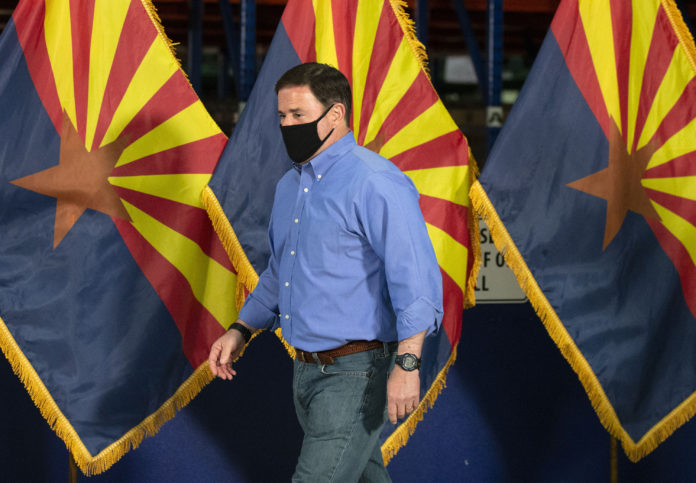
Health officials in an Arizona county want residents to observe a 10 p.m. curfew to discourage people from going to parties, bars and other social settings that are risky for the spread of the coronavirus.
Aaron Pacheco, a spokesman for the Pima County Health Department, said Monday that a voluntary curfew was pursued because the agency doesn’t have the power to order a curfew, so it’s doing all it can to lessen the risk.
“This is the extent of our capacity to do so — to ask kindly,” Pacheco said.
Pima Count isn’t allowed to make its curfew mandatory because an executive order issued early in the pandemic by Gov. Doug Ducey bars local officials from taking steps beyond what he has required.
The voluntary curfew will run from Monday through Dec. 31 and was announced a day after the county had its highest daily total virus infections since the pandemic began.
Across Arizona, officials on Monday reported 2,659 new COVID-19 cases but no additional deaths. In all, there have been more than 302,000 reported virus cases resulting in 6,464 deaths in the state since the pandemic began.
Hospitalizations from COVID-19 also continue to rise with more than 2,000 people now occupying hospital beds.
The number of new cases is a considerable drop from the past few days, when the total has ranged from 3,600 to more than 4,400.
The state last topped 4,000 new cases in July during a summer surge that made it a national hotspot after Ducey relaxed business closings and stay-home restrictions.
Ducey said Monday in a tweet that hundreds of health care providers have enrolled to administer the COVID-19 vaccine, which is expected to arrive in Arizona during mid- to late-December.
The Arizona Department of Health Services has recommended holding Thanksgiving celebrations outside while wearing masks, social distancing and staying home if sick.
For most people, the new coronavirus causes mild or moderate symptoms, such as fever and cough that clear up in two to three weeks.
Republished with the permission of the Associated Press.














